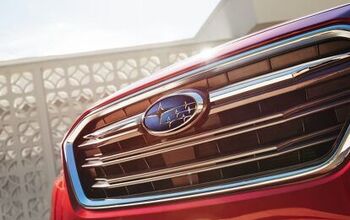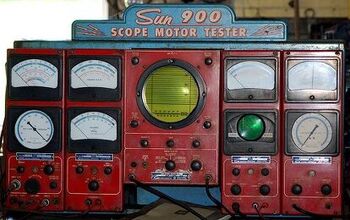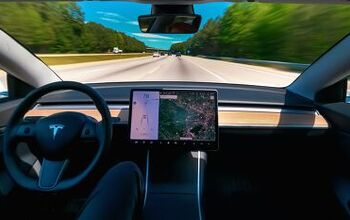Massachusetts Passes Right-To-Repair Protections

Independent repair shops and aftermarket parts retailers have been pitted against major automakers and their dealer networks in Massachusetts for years. The state has served as the primary battleground for right-to-repair legislation that would permit/prohibit customers and independent entities from working on or modifying vehicles. However, a major victory came on Tuesday after voters overwhelmingly approved a ballot measure updating existing right-to-repair laws to give vehicle owners and small shops better access to vehicle data typically reserved for industry giants.
The resulting decision gives consumers substantially more control over what’s done with the data being harvested by the industry (often without their knowledge) and frees up their options on who to go to when their vehicle needs fixing.
With that out of the way, it’s at least fairly obvious why industry players want to discourage the right-to-repair movement. They want the impunity to harvest driving data without someone looking over their shoulder and nullify the scant amount of competition that comes from do-it-yourself types and independent garages.
The Alliance for Automotive Innovation (which represents practically every car manufacturer currently selling in the U.S.) has repeatedly stressed the importance of modernizing vehicles with “mobility” features, like data acquisition. But it hasn’t been too keen on sharing said data with customers. It has claimed that the accumulated info could be dangerous and open consumers up to privacy/security concerns. While this begs the question of why they’re harvesting on-road data if it’s so freaking dangerous, only the most naive person would come to any answer other than it making them money.
Of course, the Alliance for Automotive Innovation (AAI) can blame businesses for being greedy too. It’s has been claiming aftermarket retailers and small shops just want the data for themselves. While technically true, some amount of data procurement is required just to work on modern vehicles and it’s not like anybody truly believes one business entity is going to act more responsibly with consumer info than another.
John Bozzella, CEO of AAI has also said government regulators have shared concerns about security — referencing the National Highway Traffic Safety Administration specifically, according to Automotive News. He claimed the NHTSA shared concerns about some of the language used in the ballot measure.
“Automakers have made available all the diagnostic and repair information that is needed to service a vehicle safely and securely. That consumer choice will not change,” he said. “Moving forward, automakers will continue their work to protect our customers and prioritize their safety, privacy and vehicle security.”
From AN:
The updated law expands access to mechanical data related to vehicle maintenance and repair by requiring automakers to make available all mechanical information needed to diagnose and repair vehicles as well as perform routine maintenance starting with 2022 models. It also gives vehicle owners and independent repair shops access to real-time mechanical data from telematics — systems that collect and wirelessly transmit information such as crash notifications, remote diagnostics and navigation from the vehicle to a remote server.
Meanwhile, right-to-repair supporters (including the Auto Care Association and retailers like O’Reilly Auto Parts) have claimed the passed initiative closes a loophole in the current law that exempts data transmitted wirelessly through telematics system from being shared and will ultimately give vehicle owners more choice and control over how their data is used.
The ballot passed with 75 percent of voters in Massachusetts supporting. Right-to-repair advocates have called it an important victory and feel the state should continue setting a national example.
[Image: CAT SCAPE/Shutterstock]

A staunch consumer advocate tracking industry trends and regulation. Before joining TTAC, Matt spent a decade working for marketing and research firms based in NYC. Clients included several of the world’s largest automakers, global tire brands, and aftermarket part suppliers. Dissatisfied with the corporate world and resentful of having to wear suits everyday, he pivoted to writing about cars. Since then, that man has become an ardent supporter of the right-to-repair movement, been interviewed on the auto industry by national radio broadcasts, driven more rental cars than anyone ever should, participated in amateur rallying events, and received the requisite minimum training as sanctioned by the SCCA. Handy with a wrench, Matt grew up surrounded by Detroit auto workers and managed to get a pizza delivery job before he was legally eligible. He later found himself driving box trucks through Manhattan, guaranteeing future sympathy for actual truckers. He continues to conduct research pertaining to the automotive sector as an independent contractor and has since moved back to his native Michigan, closer to where the cars are born. A contrarian, Matt claims to prefer understeer — stating that front and all-wheel drive vehicles cater best to his driving style.
More by Matt Posky
Latest Car Reviews
Read moreLatest Product Reviews
Read moreRecent Comments
- Dave M. Always thought these were a great design, timeless in fact. But as a former Volvo owner who was bled to death by constant repairs starting around 40k miles, run far far away
- MrIcky no
- Keith_93 I've rented both in the past few months. The RAV4 was OK, but the CX5 is wayyyy more civilized. Mazda really impressed me, impressive car on the highway. Simply a well thought out and pleasant drive.
- AZFelix "I must not fear. Fear is the mind killer..."I will adorn the many surfaces of my car with 'do not enter' and 'stop' signs."Where the fear has gone there will be nothing. Only I will remain."
- Ajla Ajla, the head of the "ajla is cool" awareness organization, believes that ajla is cool.

































Comments
Join the conversation
And THAT is how good government is supposed to work. I (no surprise) vehemently oppose blocks on access to anything I bought. I can understand the "seal" on modules and the like for the warranty period. If I open something up and break it, that should not be on the manufacturer. But, after that period I should have access and not have to be dependent on a dealer to reset a dash light. ...nullify the scant amount of competition that comes from do-it-yourself types and independent garages... DIY is not a big number for sure, but independents has to be a big number for vehicles that are out of warranty. I do know some who stay with dealer service - and some dealers are pretty competitive with basic services - but many choose to service their vehicles elsewhere after that three or four years.
I find this stuff interesting. Most people I know defend apples shenanigans with getting their computers and tablets repaired but God forbid a car manufacture does the same thing. I had a friend that could only get his macbook pro serviced at an authorized apple service center. The fundamental problem with standards is that standards holds back innovation. Not that I'm against standards.